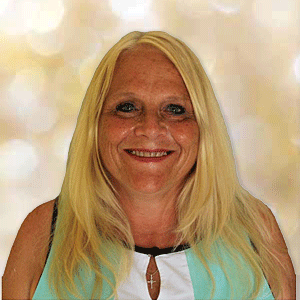 Stewart A. Alexander talks with Susan Susan Downing, CEO of Comprehensive Venture Consulting a Canadian educator and trainer, about her efforts to raise donations for an upcoming program to help at-risk youth in Jamaica.
Stewart A. Alexander talks with Susan Susan Downing, CEO of Comprehensive Venture Consulting a Canadian educator and trainer, about her efforts to raise donations for an upcoming program to help at-risk youth in Jamaica.
STEWART: Good morning. Stewart Alexander here, the Authority Marketing Guy, here in sunny Jamaica. This morning, a beautiful Sunday morning, I have the pleasure of being here with a beautiful young lady all the way from Canada. First of all, good morning to you, Susan.
SUSAN: Good morning.
STEWART: As I just alluded, that’s her name, Susan Downing. Could you tell us a little bit about yourself, introduce yourself, where you come from, a little bit about your company, and we can get started?
SUSAN: Okay. I’m a retired teacher from the Vancouver School Board in British Columbia, and for the last 30 years, I’ve been teaching at-risk youth at alternative schools in BC. The last 2 programs that I was working at, the school board gave me the opportunity … they just gave me a space and gave me the opportunity to build my own programs because I’ve been in that area for such a long time that they felt that they could trust me to do that.
The final program I established was Pinnacle program, and that was teaching grade 11 and 12. I was graduating at-risk youth, and not only was I teaching them all the core subjects, but we were establishing what it is that they would like to do next, so I would establish what they wanted to do next, I’d make sure that they had applied for it. I’d make sure that they were accepted and in almost every case they were funded for it as well.
That involved building a lot of partnerships in the community, not just with educational institutions but also with businesses in the community that would offer my students scholarships and opportunities to learn hands-on skills.
That’s always been a focus, to make sure that you have hands-on skills when you graduate from school in order to be able to … in order to be able to set yourself apart from other graduates.
STEWART: Why do you think that’s so important then, that students have these hands-on skills?
SUSAN: I just think it’s important because everything that sets you apart from someone else is a vastly competitive world is going to give you an advantage and because it was a very small group of students that I worked with, I was able to … there were 20 at the time, so I was able to work with them very, very closely to figure out what it is that they wanted to do and to get them there.
Those hands-on skills really were allowing them to get work once they left school which isn’t always an easy thing to do, and even if they didn’t want to do whatever the hands-on skills, whatever the work was that they had decided they were going to do next, at least they would have a job to be able to fund whatever else they did decide to pursue.
STEWART: So if I understand correctly, it’s very much about empowering these young people?
SUSAN: Very much so. I’m really all about being outside of the box. I wanted to have them realize that it’s possible to do what you love and make money with it without having to wait for someone else to give you a job. The more skills that you have, the more easy it is for you to make money on your own.
STEWART: Right, so in terms of these … the hands-on skills that you’re bringing to the table and helping these young people with, how does that link with the actual fact that you’re here in Jamaica, here in Portmore, here in Waterford, how does … what’s the connection? How do we connect the dots?
SUSAN: Well, my own background, I started out … I started out being a dental assistant and then working with the emotionally disturbed kids, and then I went into electrical. I became an electrician, and then I got my degree in industrial education, so I taught all technical subjects, like woodwork, drafting, mechanics, electronics, design materials technology, and I had that background when I started working with at-risk youth.
Initially when I worked with a junior group of them, I did teach them their technical subjects, but then when I started working with the senior ones that needed their core subjects in order to graduate, I eased off on the technical part.
But another thing that I was teaching was, I was teaching crafts. One thing I did was started an entrepreneurial sewing program with donated blue jeans where the students would make blue jean items like aprons and pillows and bolsters and bedspreads out of blue jean material. It was very inexpensive for the school to do that because they just had the sewing notions and the blue jeans were donated, and then they would take these … they would take these items and sell them at craft fairs.
But I also have innumerable marketable craft ideas, and that’s where it would start at Waterford Primary because I would be teaching students that possibly would not proceed to high school, I would be teaching them hands-on skills and projects that would allow them to make their own money, and I had hoped to have it turn over three times and have them be able to continue along and do that by themselves.

